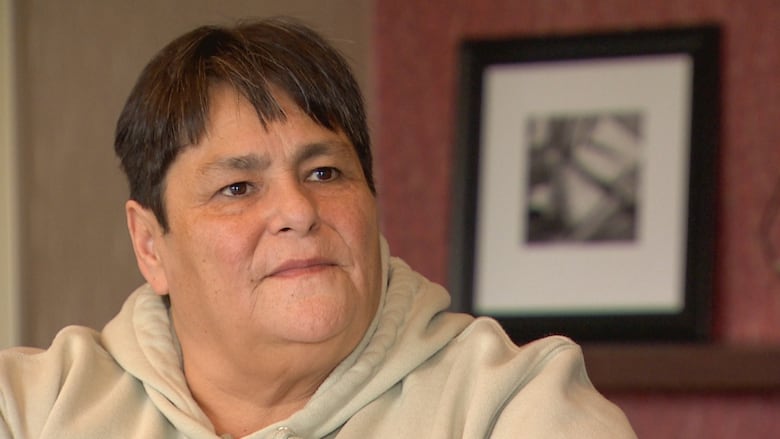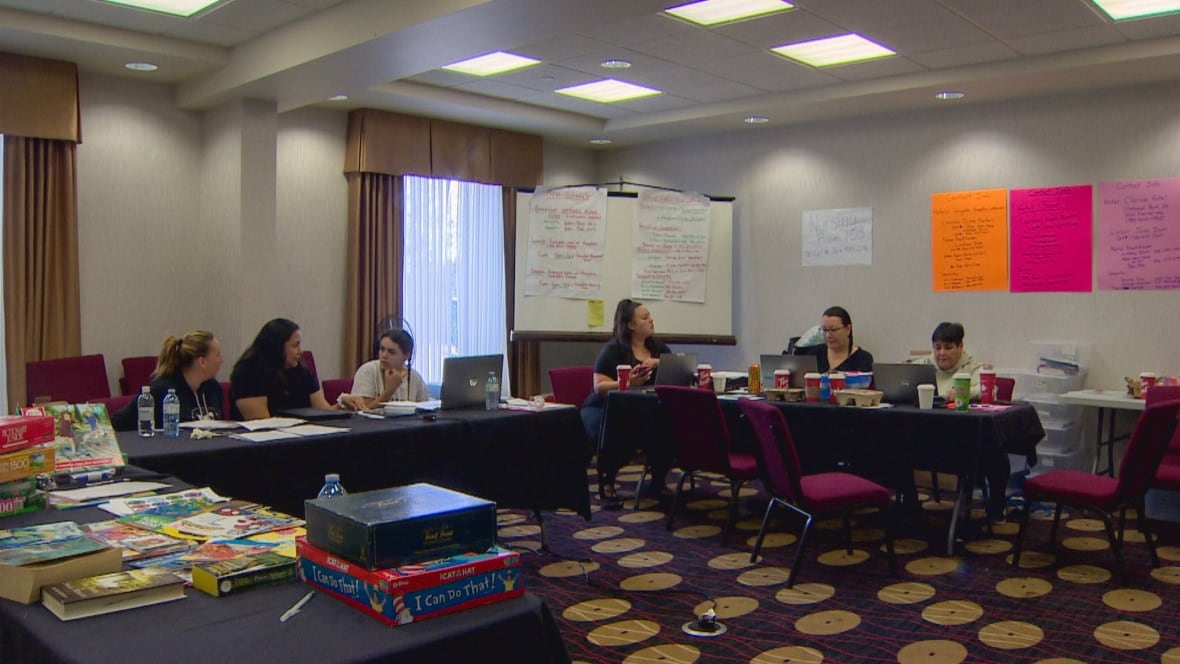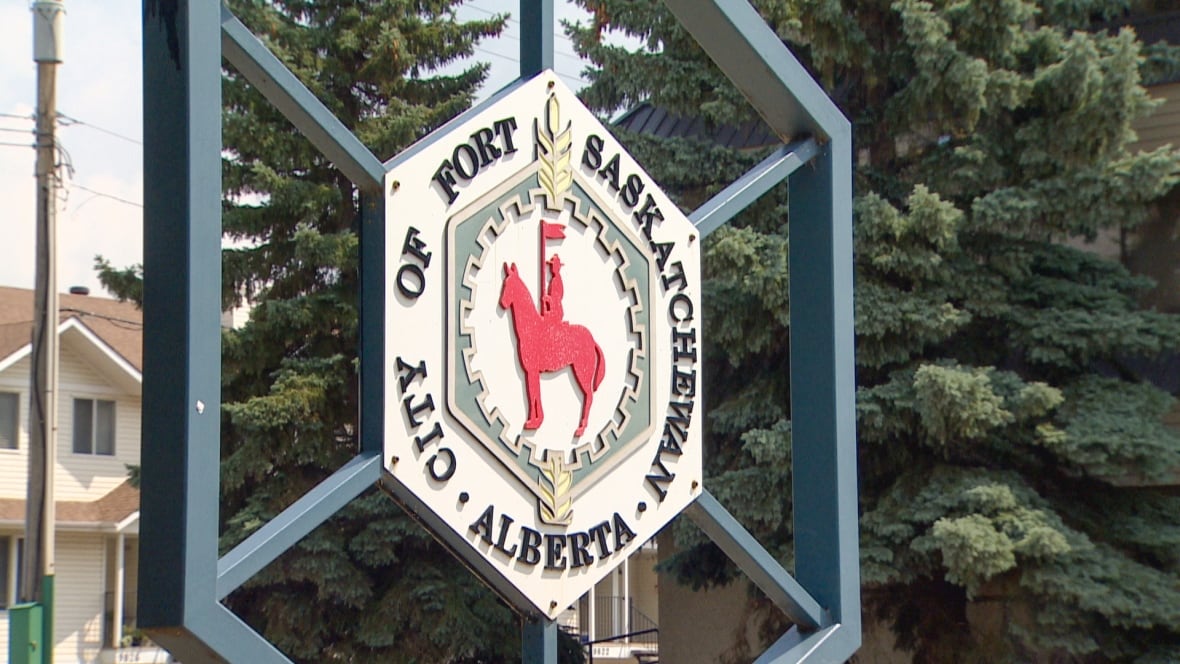'Nowhere for us to go': Wildfire evacuees from northern Saskatchewan seek refuge in Alberta
About 670 people from Canoe Lake Cree First Nation spread out in several Alberta communities

Hundreds of people from a First Nation in Saskatchewan fleeing raging wildfires have sought refuge in Alberta, as cities in their home province have run out of room to accommodate more evacuees.
Wildfires in northern Saskatchewan have triggered nine evacuation orders as of Thursday afternoon, according to the Saskatchewan Public Safety Agency's (SPSA) dashboard. Thousands of people have had to flee their homes, including those living in Canoe Lake Cree First Nation.
The community, about 345 kilometres northwest of Saskatoon, was able to send a few evacuees to North Battleford, Sask., because they have medical needs, said Demi Opikokew, reception manager for the First Nation's evacuation management team. But otherwise, nearby cities like Saskatoon and Prince Albert, Sask., were full.
"There's absolutely nowhere for us to go, because all the hotels are spoken for," Opikokew said.
"It's very sad and disheartening because we have to travel so far just to get away from the fire, when we're so close to a lot of neighbouring cities," she said.

A fire ignited about seven kilometres south of the First Nation on July 7, the SPSA wildfire map shows. It now spans about 18,600 hectares.
The First Nation evacuated its most at-risk or vulnerable residents about a week ago, Opikokew said. Then, shortly after midnight Wednesday, she and others still in the community got the call ordering them to leave by 7 a.m.
It marked the community's second wildfire evacuation within two months.
Displaced in Alberta
Boxes of diapers, bottled water, snacks and other items, sit along the walls of a Fort Saskatchewan, Alta., hotel boardroom, while various board games and books sit on a folding table inside. At two other tables, members of the Canoe Lake Cree First Nation evacuation management team are working at least 12 hours every day.
Some, like Opikokew, a mental health and addictions support worker for the First Nation, take calls outside of the headquarters' official operating hours.

"We're working 24/7," Opikokew said.
The team is responsible for keeping tabs on about 670 of their neighbours, spread out in seven hotels in several Alberta communities. They have liaisons and security stationed at each hotel, letting them know what people need, from water to support.
"It gets overwhelming. But I'm thankful for my team because without them, I don't think I'd be standing," said Michelle Morin, the community's emergency response co-ordinator.
Her constant waking thought is whether she missed somebody on the list of residents, she said.
Some evacuees are in Vegreville, Alta., about 95 kilometres east of Edmonton, while others are in communities surrounding Alberta's capital city, like Sherwood Park and Leduc.
But most — about 450 people — are in Fort Saskatchewan, Alta., according to Todd Martens, the city's fire chief and director of emergency management.

Fort Saskatchewan, located about 25 kilometres northeast of Edmonton, has hosted wildfire and flood evacuees before, such as during the 2016 Fort McMurray and 2023 Northwest Territories wildfires, he said.
"When that phone call comes out to help, we move mountains to make things work," Martens said. "Whether it's something small or big, it's really important you step up and help the individuals in need."
Opikokew and Morin, while speaking with CBC News, expressed gratitude to the City of Fort Saskatchewan for giving evacuees access to recreational facilities. The city also reserved a room in its community hall where evacuees can gather for meals.
On Sunday, elders in Fort Saskatchewan also went on a pilgrimage outside the city, Opikokew said.
'Hoping for rain'
Every day, after the evacuation management team's official hours, its members meet virtually for about an hour-and-a-half with SPSA and Meadow Lake Tribal Council officials. The team updates them on what evacuees need, while they learn the latest about the fire situation.
While speaking with CBC News early Sunday afternoon, Morin said firefighters had been able to protect the community from the flames so far.
It's still unclear how long they'll be away from home, she said. The SPSA wildfire map shows that the fire affecting the community is still out of control.
"We're just hoping for rain," Opikokew said.



